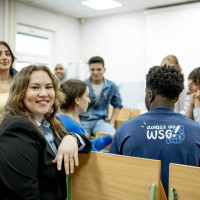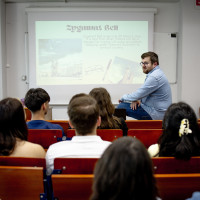History of the European Solidarity Corps
The European Solidarity Corps (ESC) is a flagship initiative of the European Union aimed at fostering solidarity among young people across Europe. It provides opportunities for individuals aged 18 to 30 to engage in volunteering and solidarity-related activities, contributing to the well-being of communities while gaining valuable experience and skills.
Origins and Background
The roots of the ESC can be traced back to the European Voluntary Service (EVS), which was launched in 1996 as part of the EU's broader youth programs. EVS allowed young people to volunteer abroad in various fields such as culture, environment, and social care, and laid the foundational framework for what would later become the ESC.
2016 – Launch Announcement
The formal concept of the European Solidarity Corps was introduced by European Commission President Jean-Claude Juncker in his State of the Union Address on 14 September 2016. The initiative was presented as a response to the growing demand for structured youth engagement in addressing societal challenges, including humanitarian crises, social exclusion, and environmental issues.
2017 – Pilot Implementation
In early 2017, the ESC entered its pilot phase, utilizing funding and infrastructure from existing EU programs such as Erasmus+ and the EU Programme for Employment and Social Innovation (EaSI). During this initial phase, thousands of young Europeans registered to participate, marking a strong demand and interest in structured solidarity activities.
2018 – Legal Establishment
The Regulation (EU) 2018/1475 of the European Parliament and of the Council, adopted on 2 October 2018, officially established the European Solidarity Corps as a stand-alone EU program with its own budget and legal framework. The program consolidated various EU youth volunteering and mobility actions under a single umbrella, offering volunteering placements, traineeships, jobs, and local solidarity projects.
2021–2027 – Current Programming Period
The current ESC program runs under the 2021–2027 Multiannual Financial Framework, with a total allocated budget of approximately €1.009 billion. This phase places a stronger emphasis on:
The updated legal basis is governed by Regulation (EU) 2021/888 of the European Parliament and the Council of 20 May 2021.
Current Status
Today, the European Solidarity Corps is fully operational and plays a central role in the EU's youth policy. It enables thousands of young people each year to contribute to meaningful causes, both within the EU and beyond, while enhancing their employability and fostering European values of solidarity, democracy, and cooperation.









